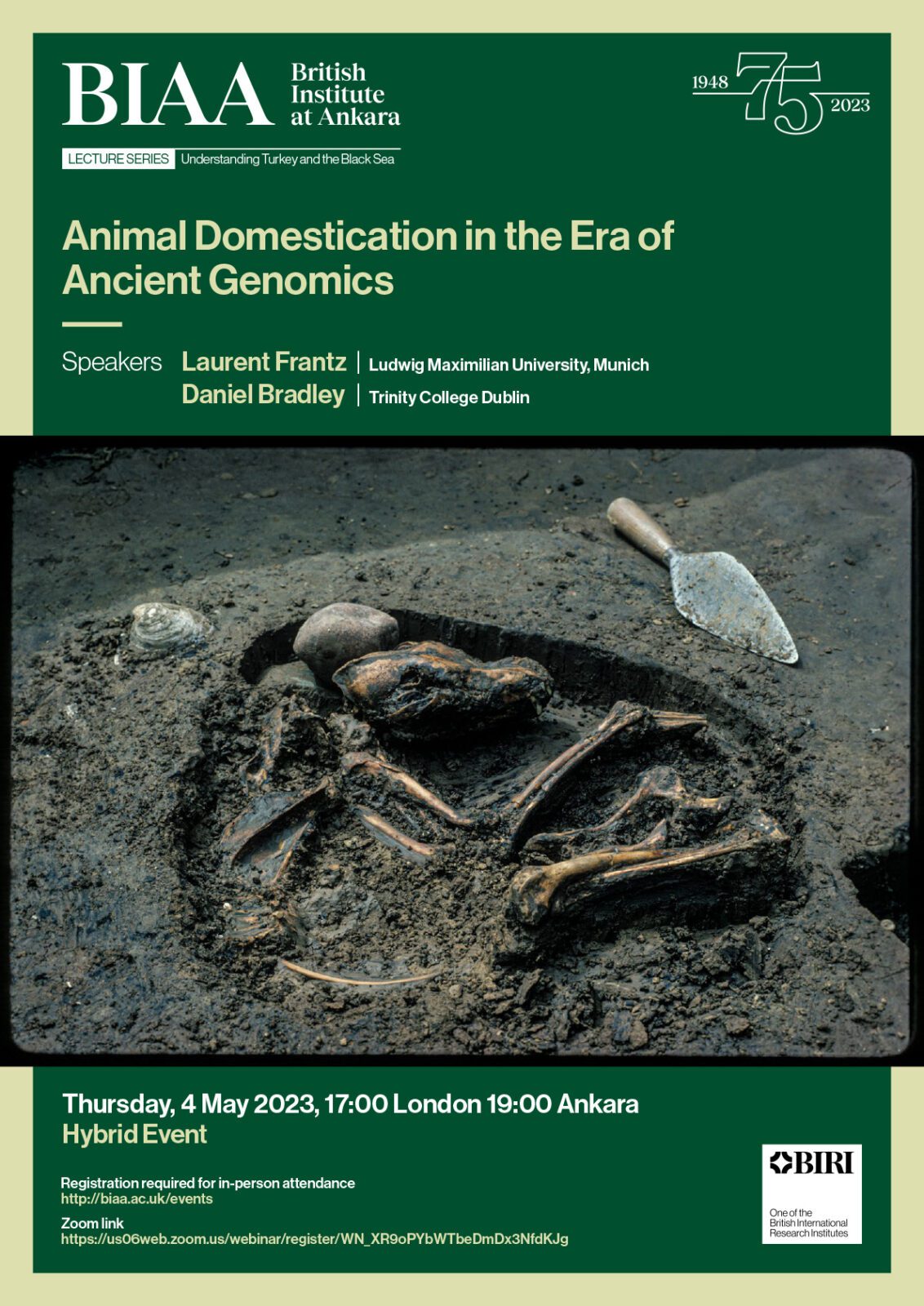
Location BIAA, 154 Atatürk Bulvarı, and online
Date and time
Thursday 4 May 2023
16:00 - 18:30 (London GMT)
19:00 - 21:30 (Ankara UTC+3)
Speakers
Laurent Frantz
Ludwig Maximilian University, MunichDaniel Bradley
Trinity College Dublin
The domestication of animals led to a major shift in human subsistence patterns, from a hunter–gatherer to a sedentary agricultural lifestyle, which ultimately resulted in the development of complex societies. Over the past 15,000 years, the phenotype and genotype of multiple animal species, such as dogs, pigs, sheep, goats, cattle and horses, have been substantially altered during their adaptation to the human niche. Recent methodological innovations, such as improved ancient DNA extraction methods and next-generation sequencing, have enabled the sequencing of whole ancient genomes. These genomes have helped reconstruct the process by which animals entered into domestic relationships with humans and were subjected to novel selection pressures. Here, we discuss and update key concepts in animal domestication in light of recent contributions from ancient genomics.
Laurent Frantz is a Professor of Palaeogenomic in the Institute of Palaeoanatomy, Department of Veterinary Sciences, at the Ludwig Maximilian University of Munich. He has co-authored numerous publications about ancient DNA, including on animal domestication and human genomics, including the first ancient dog, pig, sheep and cattle genomes with Daniel Bradley.
Daniel Bradley is a Professor of genetics in the Smurfit Institute of Genetics, Trinity College Dublin. He has co-authored numerous publications about ancient DNA, including on animal domestication and human genomics, including the first ancient dog, pig, sheep and cattle genomes with Laurent Frantz.